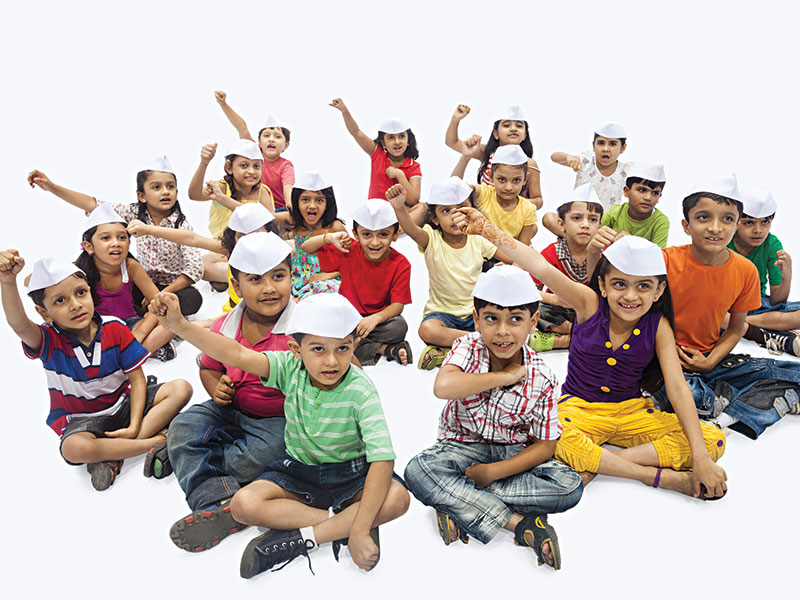Child rights: What every parent should know

Most parents are unaware that children are also citizens whose rights are guaranteed by the Constitution of India, national and international legislation. It’s the duty of every parent to respect the rights of children and protect them from exploitation, abuse and discrimination, starting from home.
In the majority of Indian households where disciplinarian parenting is the norm, child rights are an alien i.e Western concept. Parent-child relationships in India are still centred around command-and-control with inner family democracy absent. Most parents are unaware that children are also citizens whose rights are guaranteed by the Constitution of India, national and international legislation. It’s the duty of every parent to respect the rights of children and protect them from exploitation, abuse and discrimination, starting from home.
The United Nations Convention on the Rights of the Child, 1989 (UNRC) — a defining international document which sets out the civil, political, economic, social, health and cultural rights of children — defines a child as “every human being below the age of 18 years unless, under the law applicable to the child, majority is attained”. UNRC came into force on September 2, 1990, after it was ratified by 196 countries including India. It states that every child has the right to:
- Life, survival and development
- Protection from violence, abuse and neglect
- An education that enables children to fulfill their potential
- Be raised by, or have a relationship with, their parents
- Express their opinions and be heard.
Parenting red flags
Here are four most common ways in which parents abuse and deny their children’s rights to dignity, freedom of expression, leisure and play.
Discriminating, comparing and humiliating children. Parents often discriminate, indulge in favouritism, and compare children with siblings and/or others. This is a violation of children’s right to dignity and protection from emotional abuse.
Pushing children into the academic rat race. Academic success obsessed parents push children into unhealthy competition, enrolling them in strenuous tuitions and coaching classes. This robs children of their leisure/play time which is essential for their overall development, prompting anxiety and depression.
Spanking/ corporal punishment. Hitting, beating and intimidating children is physical abuse and punishable under the law. Children who suffer parental abuse can be removed from the custody of the parent.
Denying children the right to express their opinions. In most Indian households, the dictum ‘children should be seen and not heard’ is followed religiously. Denying children the right to freedom of expression is denial of their right to be heard and voice their opinions.
Guilty? Begin by involving children in all matters which directly relate to them. However young a child is, she has a right to be heard, even if it is deciding the colour of a dress! Encouraging children to voice their opinions and respecting their viewpoints enables them to develop into articulate communicators and decision-makers.
Schools & child rights
All schools — private and government — are governed by provisions of the Right of Children to Free & Compulsory Education (aka RTE) Act, 2009. Registration certificates issued by the DDPI (Deputy Director of Public Instruction) and/or education ministry) to schools clearly state that the management must abide with all State education/child laws, rules, regulations, guidelines and policies.
Corporal punishment. Section 17 of the RTE Act defines corporal punishment as physical abuse and mental harassment of children in school. School managements found guilty of inflicting corporal punishment can be punished with withdrawal of their ‘No objection certificate’ granted by the state education ministry and cancellation of registration certificate. Perpetrators are also liable to be punished under criminal law.
Sudden changes in the syllabus, uniform, books & fees. Affiliation rules of the state, CBSE and CISCE exam boards mandate that schools must refrain from suddenly and arbitrarily changing curriculums, prescribed textbooks, uniform or fees. Parents must be given adequate time to prepare for these changes.
Selling uniforms, books etc within school premises at escalated prices. In several judgments the Karnataka high court cautioned education institutions against selling books and uniforms at escalated prices and forcing parents to purchase from favoured vendors.
Expelling and detaining students. Section 16 of the RTE Act 2009 states that a child shall not be expelled or detained until completion of class VIII. Not allowing children to attend school because parents have failed to pay fees is synonymous with expulsion and violation of s.16 of the RTE Act.
Parents with grievances against a school management can petition the local BEO (block education officer) who is time bound to investigate the matter within 15 days as per s.24 of the RTE Rules 2012 and report violation, if any, to the DDPI (Deputy Director of Public Instruction) who will in turn investigate within 15 days and report violation to the CEO for imposing penalties on the erring school. The State Child Right Protection Commission can also be petitioned, which has powers to recommend action against erring institutions and officials for dereliction of duty.
Important child rights legislation
The Union government has enacted several laws to guarantee protection and care of children. They include:
The Women’s and Children’s Institutions (Licensing) Act, 1956
The Orphanages and Other Charitable Homes (Supervision and Control) Act, 1960
The Child Labour (Prohibition and Regulation) Act, 1986
Juvenile Justice (Care and Protection of Children) Act, 2000
The Commissions for Protection of Child Rights Act, 2005
The Prohibition of Child Marriage Act, 2006
The Right of Children to Free and Compulsory Education (RTE) Act, 2009
(Veena Jadhav is an advocate with 30 years of practice in the Karnataka high court and former legal adviser & consultant to the Karnataka State Commission for Protection of Child Rights)
















Add comment